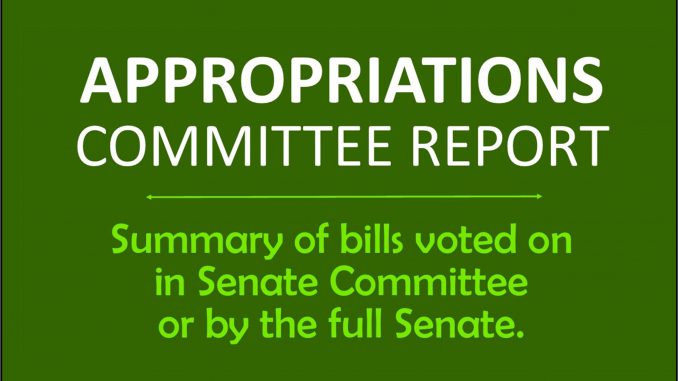
SJR 20/SJR 2- Expenditure limitation constitutional amendment
SF 457/SF 225– Civil court fines and fees
COMMITTEE ACTION:
SJR 20/SJR 2– Expenditure limitation constitutional amendment
SJR 20/SJR 2 proposes an amendment to the Iowa Constitution that creates a requirement to establish a General Fund budget expenditure limitation requirement. The proposed expenditure limitation would be the lesser of:
- 99 percent of the adjusted revenue estimate established by the Revenue Estimating Conference (REC) for the next fiscal year.
OR
- The net revenue estimate for the current fiscal year, increased by 4 percent.
The Legislature may suspend this by passing a joint resolution, subject to approval by the Governor, by two-thirds of the members elected to the House and to the Senate.
This resolution is similar to Iowa’s current 99 percent expenditure limitation in Iowa Code. There are two major differences from current law:
- Current law does not include the alternative adjusted revenue estimate calculation that incorporates increases to the current fiscal year by 4 percent.
- Current law allows the balance from the previous year’s surplus, after the reserved funds are filled, to carry forward to the next fiscal year and be added to the expenditure limitation. SJR 20 does not calculate the carry forward surplus into the expenditure limitation.
SJR 20 requires the Legislature to pass legislation to implement the constitutional amendment after it is ratified by Iowa voters. A constitutional amendment must pass two General Assemblies before being ratified by Iowa voters. An amendment was adopted in committee that takes out reference to the Secretary of State publishing the amendment.
[2/28: 15-5 (No: Bolkcom, Celsi, Dotzler, T. Taylor, Wahls; Absent: Kraayenbrink)]
SF 457/SF 225– Civil court fines and fees
SF 457/SF 225 is similar to legislation passed by the Senate in 2018 (SF 2394) to establish a dedicated funding stream for the Division of Criminal Investigation’s crime lab. This funding will speed up the testing of sexual assault kits, which has been hindered by lack of staff and equipment. SF 457 provides more funding for the crime lab and also $9 million in technology money for the Judicial Branch to a dedicated fund that is not subject to appropriations. Under the bill, a percentage of the crime services surcharge that is added to criminal fines will go directly to the crime lab. The remaining criminal surcharge monies kept by the state will continue to go to the Victim Compensation Fund and to the newly created Drug Abuse Resistance Education Fund at the Office of Drug Control Policy.
The current system of fines, fees and surcharges allocates money to the General Fund, along with a number of diversions to existing funds. The bill increases numerous scheduled fines and non-scheduled fines for simple misdemeanors, serious misdemeanors, aggravated misdemeanors, “D” felonies and “C” felonies, as well as increasing certain civil filing fees. The bill also reduces the criminal surcharge that is added to all criminal fines and removes the Law Enforcement Initiative Surcharge, which is added to fines for a specified group of criminal violations. The increase in criminal fines combined with the reduction in the criminal surcharge from 35 percent to 10 percent provides a slight increase in the total amount charged to someone who has a criminal conviction with a fine imposed. The increased fines and increased civil filing fees will be deposited into the General Fund, while all of the criminal surcharges will be distributed for specific purposes (cities and counties, victim compensation fund, the crime lab, DARE fund). This proposal is projected to have a neutral impact on General Fund revenues while providing additional funding to the crime lab and DARE education.
Two amendments adopted in committee provided for a flat $500 surcharge for Agricultural Theft (instead of a percent), and made changes to the first offense of illegally passing a stopped school bus and providing for a driver improvement program.
[2/28: short form (Absent: Kraayenbrink)]
